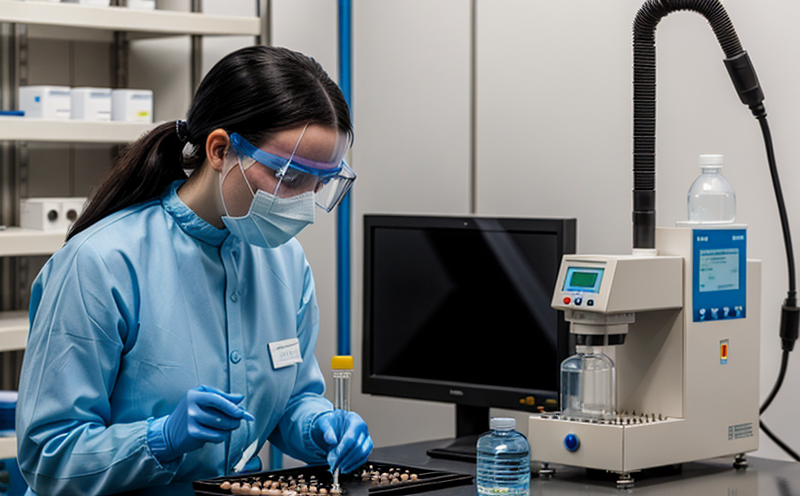Extractable Profile Testing of Plastic Packaging
In the pharmaceutical industry, plastic packaging plays a crucial role in protecting drug products from external factors that could compromise their integrity and efficacy. Extractables are substances that can leach out into contact materials during processing or storage conditions. Understanding these extractables is vital for ensuring product safety and compliance with regulatory standards.
Extractable profile testing evaluates the potential compounds that may be released from plastic packaging when in contact with various solvents, solubilizers, or under different environmental conditions. This service helps pharmaceutical manufacturers identify any substances that might migrate into drug products, thereby ensuring adherence to quality and safety requirements.
The process involves simulating real-world scenarios where the packaging comes into contact with different media such as water, ethanol, acetone, and other solvents. The extracts are then analyzed using advanced analytical techniques like High Performance Liquid Chromatography (HPLC), Gas Chromatography-Mass Spectrometry (GC-MS), or Fourier Transform Infrared Spectroscopy (FTIR).
The primary goal of this testing is to provide a comprehensive profile of the extractables, which can be used for risk assessment and formulation optimization. This service not only aids in compliance with regulatory guidelines but also ensures that the packaging materials are suitable for their intended use.
Compliance with various international standards such as ISO 14972:2018, USP , and European Pharmacopoeia (Ph. Eur.) is critical. These standards provide a framework for ensuring that the packaging materials are safe and do not adversely affect the drug product.
The testing process begins with selecting appropriate solvents that mimic real-world conditions. Specimen preparation involves exposing the packaging to these solvents under controlled temperature and time parameters. The extracts obtained from this exposure are then analyzed using state-of-the-art instrumentation.
Interpreting the results is a critical step in ensuring accurate characterization of extractables. This requires expertise in both analytical chemistry and pharmaceutical science. Our team of experts ensures that all findings are reported comprehensively, providing insights into potential risks and recommendations for mitigating them.
Applied Standards
- ISO 14972:2018 - Medical Devices - Application of Risk Management to Medical Devices
- USP - Packaging Systems and Components for Contact with Drugs
- Ph. Eur. Monograph 3.3.18 - Plastic Containers, Closures and Adhesives in Contact with Medicinal Products
Why Choose This Test
- Ensures compliance with regulatory requirements.
- Identifies potential risks early in the development process.
- Aids in formulation optimization for safer products.
- Provides comprehensive data for risk assessment.
- Supports quality assurance initiatives.
Use Cases and Application Examples
This testing is particularly beneficial in the early stages of product development. It allows pharmaceutical companies to identify any potential issues with packaging materials before they become a significant concern. For instance, during formulation optimization, understanding extractables can help refine material selection and processing conditions.
Another key application is during regulatory submissions where comprehensive data on extractables is required. This ensures that all necessary information is provided upfront, facilitating smoother approvals. Additionally, this testing is crucial for ongoing quality control to maintain the integrity of drug products throughout their lifecycle.
A case in point is a recent collaboration with a leading pharmaceutical company. They used our extractable profile testing service during formulation optimization for a new injectable product. The results provided critical insights into the migration of certain plasticizers, which were then mitigated through material selection and processing adjustments.





